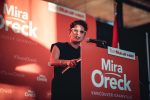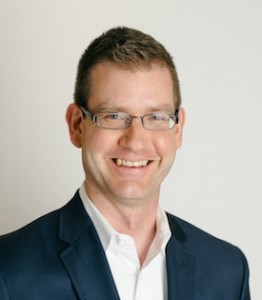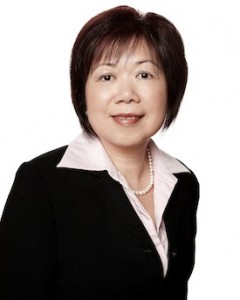CIJA and SUCCESS held a candidates forum Sept. 22. (photo from SUCCESS)
Pocketbook issues and cultural concerns topped the agenda at an election forum put together by the Centre for Israel and Jewish Affairs and the multicultural service organization SUCCESS.
Representatives of four federal parties convened on Sept. 22 in Chinatown to address issues ranging from housing affordability and employment to community security, immigration and inclusion.
“Affordability is the key question every party is facing right now,” said Zach Segal, Conservative candidate in Vancouver Granville. He said his party’s plan to give tax cuts to the lowest income bracket would put more money in pockets.
Don Davies, New Democratic Party incumbent in Vancouver Kingsway, noted that about half of Canadians are $200 away from insolvency and that, for every dollar an average Canadian earns, they owe $1.77. Davies said the former Conservative government eliminated funding for social housing while the Liberals promised to return it and didn’t.
“If Liberal and Conservative policies have been so beneficial to low-income Canadians, why has income inequality only grown every year for the last 30 years?” asked Davies.
Harjit Sajjan, Liberal incumbent in Vancouver South and minister of national defence in the last government, said the Liberal promise to raise the first-time homebuyers’ incentive to apply to homes priced as high as $789,000 reflects the reality of markets in high-priced cities.
The Green party’s representative, Lawrence Taylor, who is running against Davies in the Kingsway riding, said Canada’s immigration policy needs to address changes in the economy. “We will probably need more people with different skills as our economy develops into a knowledge economy,” he said.
All major federal parties are in general agreement about the number of immigrants Canada should accept, and Liberal and Conservative governments have each raised the base annual immigration numbers. Only the People’s Party of Canada, which was not included in the forum, is arguing for lower immigration.
Davies said NDP policy is that immigration should be set at one percent of population and that reuniting families should be a priority for Canada’s immigration system. Family class immigrants, who represented 40% of all new Canadians in the 1990s, have fallen to about 20%, he said.
“Family class is the single most important class of immigrants because they are coming into a supported structure,” said Davies.
Davies also criticized Canada for continuing to treat “Donald Trump’s United States” as a safe third country for refugees, “even though he’s caging children and separating parents from their kids. Yet we still regard that country as a safe third country for refugees and asylum-seekers? I don’t think so.”
The New Democrat also called for more clarity and sensitivity of language from leaders, especially those who use terms like “illegal refugees.”
“Jews that were fleeing from Germany and making their way out of there, they were not jumping any queue. They were fleeing for their lives,” said Davies. “To even use terminology that suggests that refugees that are seeking safety are, in some way, illegal or are breaking the rules is wrong and we need to change that language because language matters.”
Sajjan, who came to Canada at the age of 5, said it is crucial to ensure that new Canadians are well-supported, so that they can quickly become successful in society. He linked immigration to the economy, saying that representatives of Microsoft had told him that they invested in Vancouver operations in part because Canada’s immigration policies make skilled labour accessible.
Segal called for better credential recognition, improved language training and more private sponsorships of refugees.
On the issue of credential recognition, Davies quipped that the back seat of a taxi is the best place in Canada to have a heart attack because of the number of foreign-trained doctors driving cabs in this country.
On community security, an issue of heightened concern to Jews after recent acts of violence around the world, Sajjan called it “ridiculous” that congregants at a synagogue need security to feel safe and said that leadership is needed to stand against hatred and intolerance.
Green candidate Taylor said his party does not have a policy on the subject.
Asked about Justin Trudeau’s brownface and blackface incidents, Sajjan said it has opened a discussion Canadians should have had a long time ago. He said his father told him they didn’t address issues like this in years past because they were confronting much greater racism, including violence. In one of the few flashpoints in the forum, Sajjan then turned the issue to comments made years ago by Conservative leader Andrew Scheer condemning same-sex marriage.
Segal called Trudeau’s blackface incidents “open mockery” and dubbed attacks on Scheer and other Conservatives “character assassinations.” Response to the incidents represent “rank hypocrisy,” said Segal. “Can you imagine if Andrew Scheer was caught wearing this type of costume three times?” he asked.
Taylor, the Green candidate, said of Trudeau: “Trust has been broken and that will be difficult to mend.”





